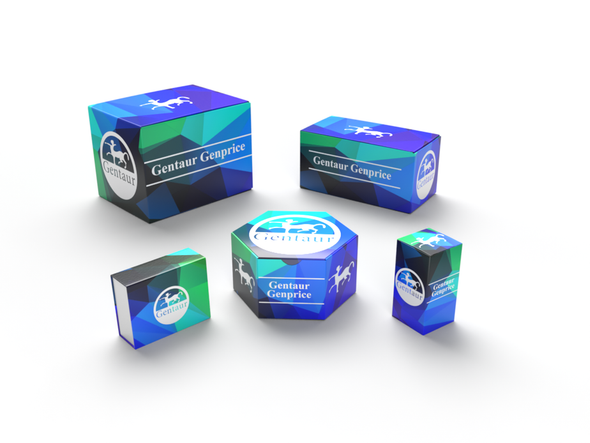Description
CD2BP2 Antibody | 55-522 | Gentaur UK, US & Europe Distribution
Host: Rabbit
Reactivity: Human
Homology: Predicted species reactivity based on immunogen sequence: Mouse
Immunogen: This CD2BP2 antibody is generated from rabbits immunized with a KLH conjugated synthetic peptide between 24-52 amino acids from the N-terminal region of human CD2BP2.
Research Area: Immunology
Tested Application: WB, IHC-P, Flow
Application: For WB starting dilution is: 1:1000
For IHC-P starting dilution is: 1:50~100
For FACS starting dilution is: 1:10~50
Specificiy: N/A
Positive Control 1: N/A
Positive Control 2: N/A
Positive Control 3: N/A
Positive Control 4: N/A
Positive Control 5: N/A
Positive Control 6: N/A
Molecular Weight: 38 kDa
Validation: N/A
Isoform: N/A
Purification: This antibody is purified through a protein A column, followed by peptide affinity purification.
Clonality: Polyclonal
Clone: N/A
Isotype: Rabbit Ig
Conjugate: Unconjugated
Physical State: Liquid
Buffer: Supplied in PBS with 0.09% (W/V) sodium azide.
Concentration: batch dependent
Storage Condition: Store at 4˚C for three months and -20˚C, stable for up to one year. As with all antibodies care should be taken to avoid repeated freeze thaw cycles. Antibodies should not be exposed to prolonged high temperatures.
Alternate Name: CD2 antigen cytoplasmic tail-binding protein 2, CD2 cytoplasmic domain-binding protein 2, CD2 tail-binding protein 2, U5 snRNP 52K protein, U5-52K, CD2BP2, KIAA1178
User Note: Optimal dilutions for each application to be determined by the researcher.
BACKGROUND: This gene encodes a bi-functional protein. In the cytoplasm, the encoded protein binds the cytoplasmic tail of human surface antigen CD2 via its C-terminal GYF domain, and regulate CD2-triggered T lymphocyte activation. In the nucleus, this protein is a component of the U5 small nuclear ribonucleoprotein complex and is involved in RNA splicing. A pseudogene has been identified on chromosome 7. Alternative splicing results in multiple transcript variants but their biological validity has not been determined.






